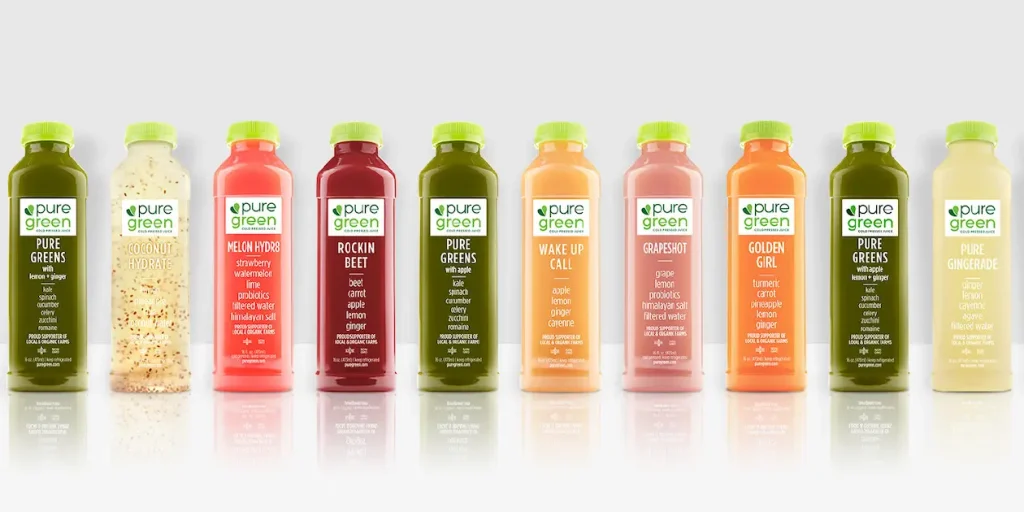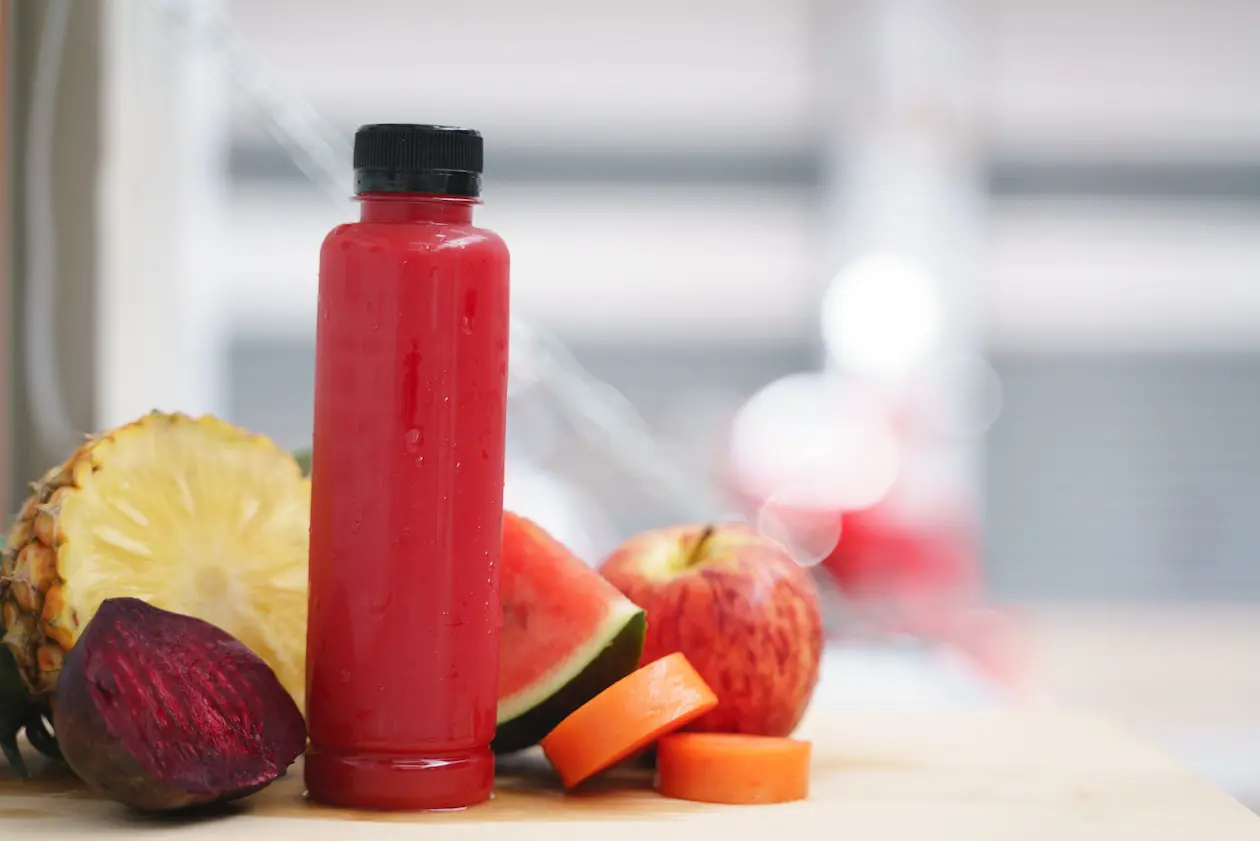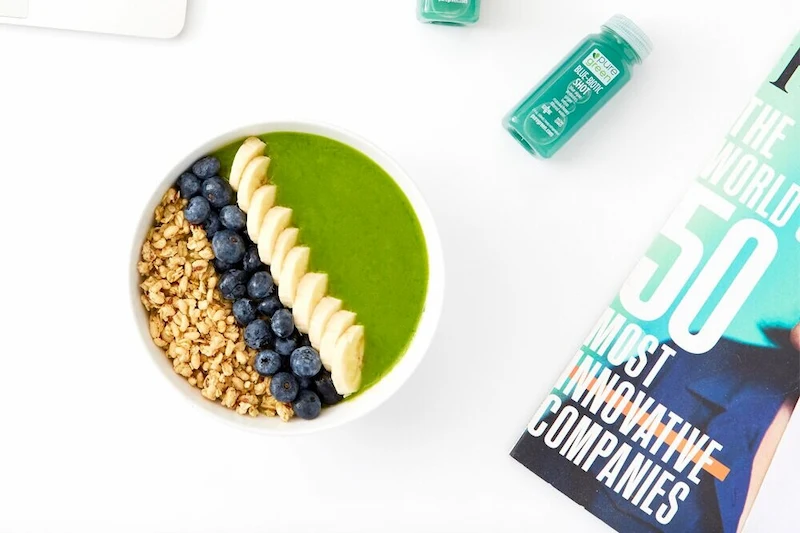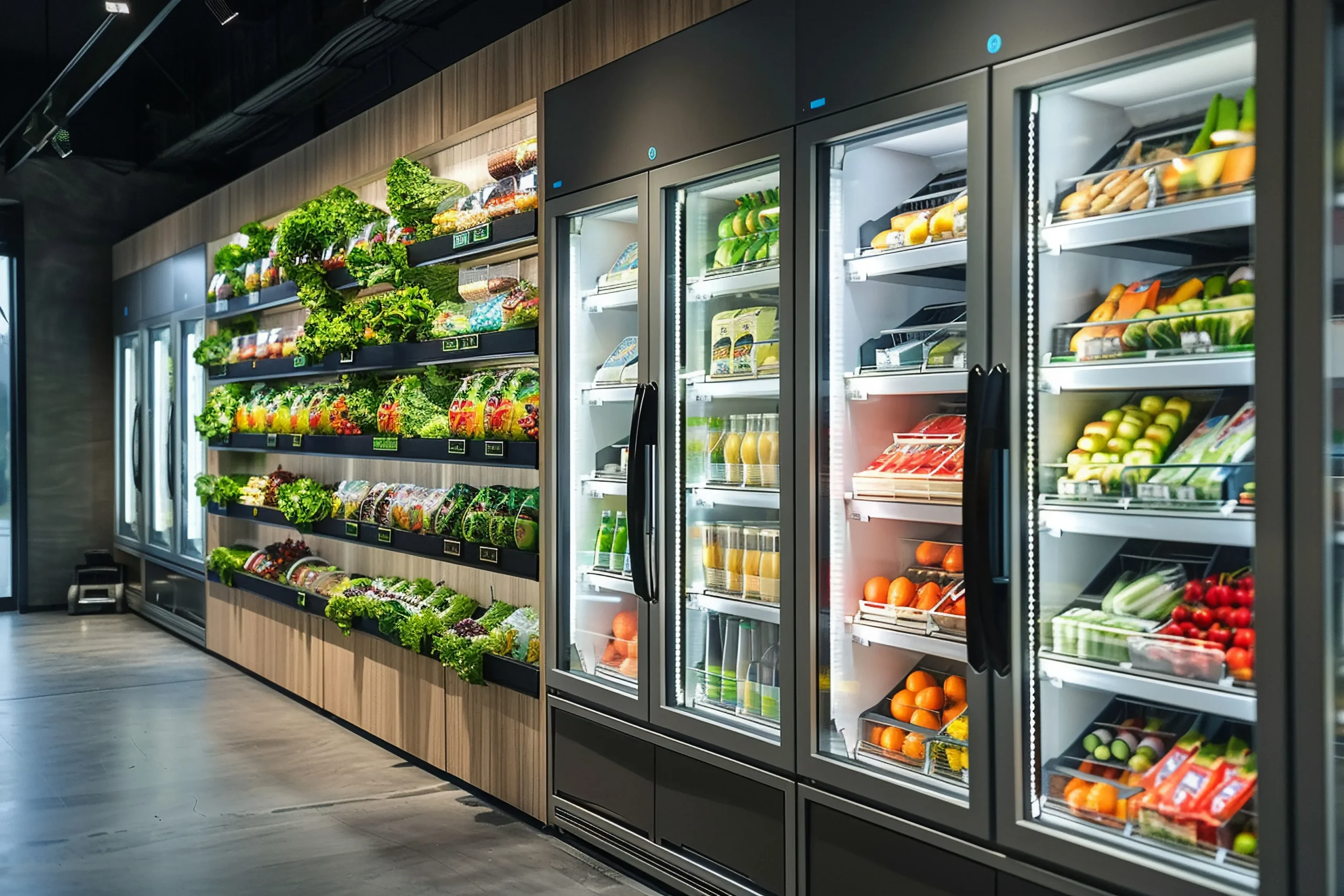Key Takeways
- Cold pressed juice retains more vitamins, minerals, and enzymes due to less heat and oxidation.
- With no added sugar and minimal processing, cold pressed juice is a healthier alternative to conventional fruit juices.
- Despite being natural, the fructose in fruit-based cold pressed juices can be high, making vegetable-inclusive options better for sugar management.
- The natural acids and sugars in cold pressed juice can affect dental enamel, so it’s wise to drink water afterwards.
- Cold pressed juice typically costs more but offers higher nutritional quality compared to traditional juices.
- Considering its high nutritional content and natural processing, “is cold pressed juice good for you” can be answered affirmatively, especially when included as part of a balanced and health-conscious diet.
WHAT IS A COLD PRESS JUICE BAR?
Like all the different types of juices, cold pressed juices are extracted from fresh fruit and raw vegetable produce. Cold pressed juice can be made from any combination of fresh produce and commonly features superfoods including apple, ginger, lemon, turmeric, pineapple and kale.
When considering is cold pressed juice good for you, it’s essential to delve into the benefits offered by the cold pressing process. Unlike traditional juicing methods that use fast-spinning blades generating heat, the cold press method involves crushing the fruits and vegetables and then pressing them to extract the juice. This process minimizes heat and oxidation, preserving the essential nutrients, enzymes, and vitamins found in the raw produce. As a result, cold pressed juice retains a higher concentration of natural nutrients compared to conventional juices.
This means you’re getting more vitamins, minerals, and antioxidants in every sip, which can contribute to improved digestion, a stronger immune system, and overall better health. Additionally, cold pressed juices are free from added sugars and preservatives, making them a pure and wholesome choice for those looking to maintain a healthy diet. So, in essence, cold pressed juice is not just a trendy beverage; it’s a nutrient-packed option for those seeking to enhance their health naturally.
So what makes cold pressed juice, cold pressed, exactly? And no, it doesn’t mean it was manufactured in Alaska! Well, what sets cold pressed juice apart from regular old juice is actually the juicing method used to get to the raw juice. Let’s check it out.
HOW IS PRESSED JUICE MADE?
To really appreciate the difference between regular bottled juice and cold press, first, it’s important to consider how mass-produced juice is usually made. Conventional juicing methods use something called a masticating juicer, or centrifugal juicer. A masticating juicer works by grinding down the raw produce to enable the liquid to be separated from the pulp. This movement incorporates heat into the process, like the way your blender at home heats up when you use it. The pulp may also be heated to help get more liquid out of the fruit – the way some people like to microwave a lemon before squeezing it to get all the juice out.
Now the regular blending method adds heat to the raw juice, but it also adds oxygen to the mix, as the blending process in and of itself whips air into the mix.
So, you might be asking yourself, what does this mean for me and my morning OJ? Well, the oxygen and heat actually really aren’t that good for fruits and vegetables. As raw food enthusiasts will tell you, cooking, and any form of heat breaks down the delicate vitamins, minerals, nutrients and elements found in the raw produce. This means that traditional bottled juice is lacking in a lot of these nutritional goodies that you would probably expect from a raw piece of fruit or vegetable.
It’s one of the many reasons why most health advocates don’t actually recommend regularly drinking fruit juice as a part of a balanced diet.


So Where does Cold Pressing Come into Things?
Well, the cold pressing method used a special juicing machine. It’s known as a cold juice press or slow juicer. Rather than grinding and blending, it does just what it says – presses the juice from the raw produce. This method generates minimal heat, hence the name. A slow juicer also minimizes the oxidation process, which means that more of those essential vitamins, minerals, nutrients and enzymes stay intact.
Okay, so what are the benefits really, and is cold pressed juice actually worth the price difference?
WHAT ARE THE COLD PRESSED JUICE BENEFITS?
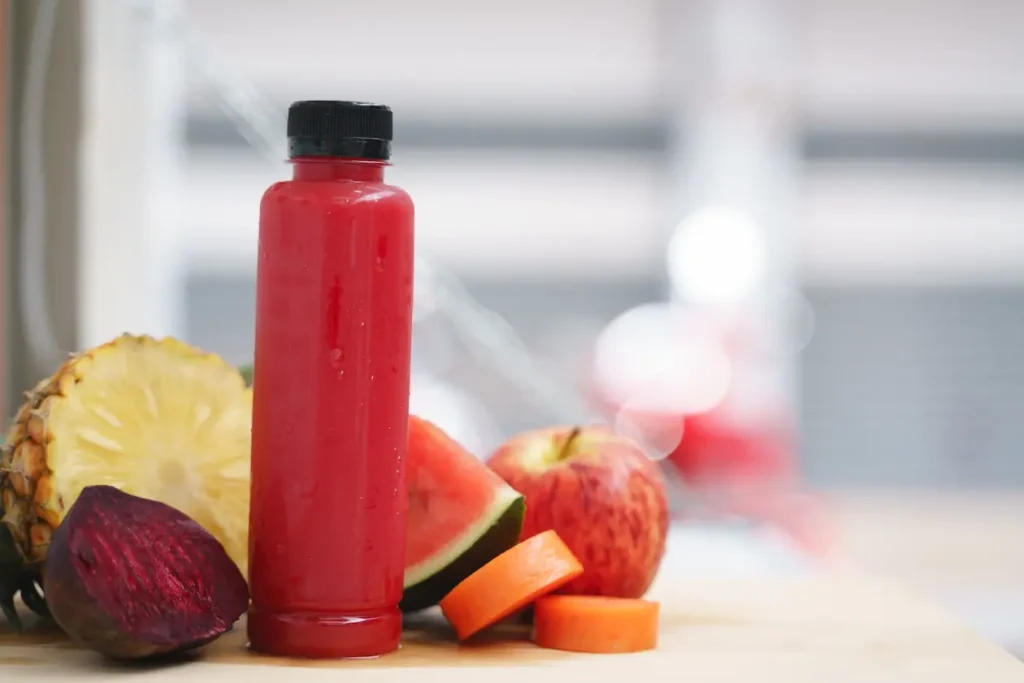
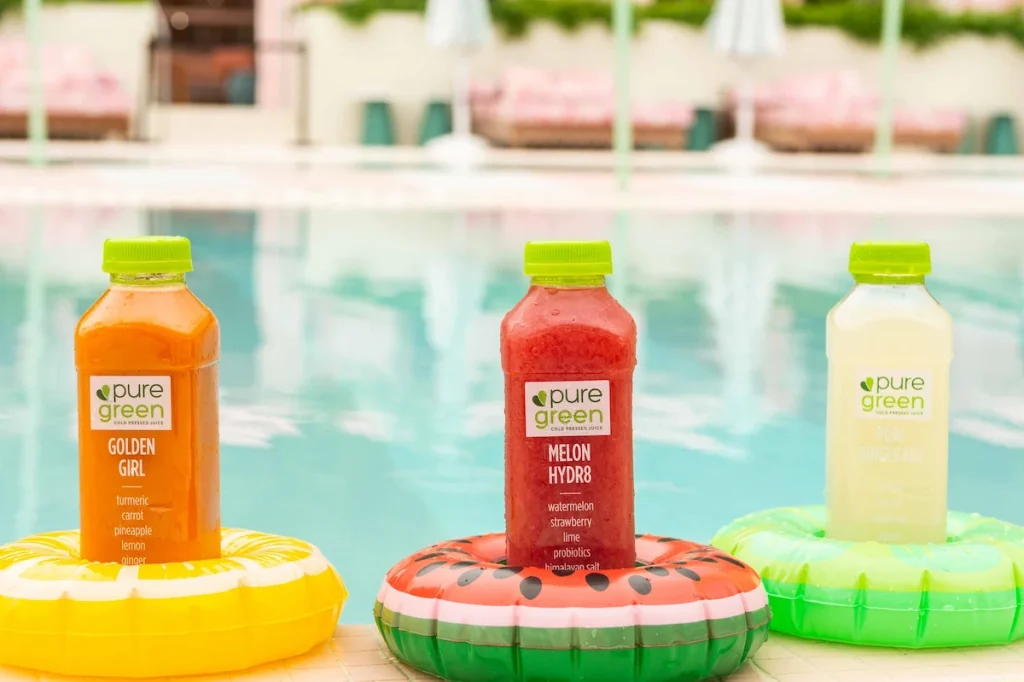
Concentration of Vitamins
Higher Amount of Antioxidants
Being a super strong antioxidant source, cold pressed juice has many health care benefits. It can aid and support many bodily functions including immunity, and cardiovascular health and even keep your skin clear and hair strong. Many manufacturers even make specialized ‘wellness shots’. These concentrated confections are usually high in flavor and pack a powerful antioxidant punch, with ingredients like turmeric, lemon and ging
Better Taste
Well, this one you’ll have to try yourself or take our word for it, but cold pressed juice is pretty darn tasty. This has to do with the entire production process. As cold pressed juice is usually unpasteurized, you’ll get a fresher (and therefore, tastier) juice than what you’ll obviously take from a vacuum-sealed Ultra Heat Treated carton of generic apple juice.
Quality Produce
Perfect Juice Cleanse
ARE THERE ANY DRAWBACKS TO DRINKING COLD PRESSED JUICE?
Food Waste
High in Sugar
Damages Tooth Enamel
While it is very unusual for cold press juice to contain added sugar, fruit is very high in fructose and drinking it down you may be less aware of exactly how much sugar you are consuming. We recommend selecting a juice made with a combination of fruit and vegetable matter. Carrot, celery, and even leafy greens like kale and spinach make for a delicious juice while being low in sugar!
Pasteurization
This shouldn’t be a problem if you are making your fresh juice at home. However, when buying cold pressed juices, it is important to consider if it is pasteurized or not. Pasteurization is heating food or drinks to kill off any potentially harmful bacteria. Pasteurization is a great option for most foods as it reduces the need for additional preservatives. However, this process heats the fresh juice, so it is commonly avoided by most cold juice manufacturers, who will freeze or only sell the fresh juice while it is still safe and before any harmful bacteria can form. That being said, pregnant women and those with extreme sensitivities are recommended to only consume pasteurized juices.
High Price Point
